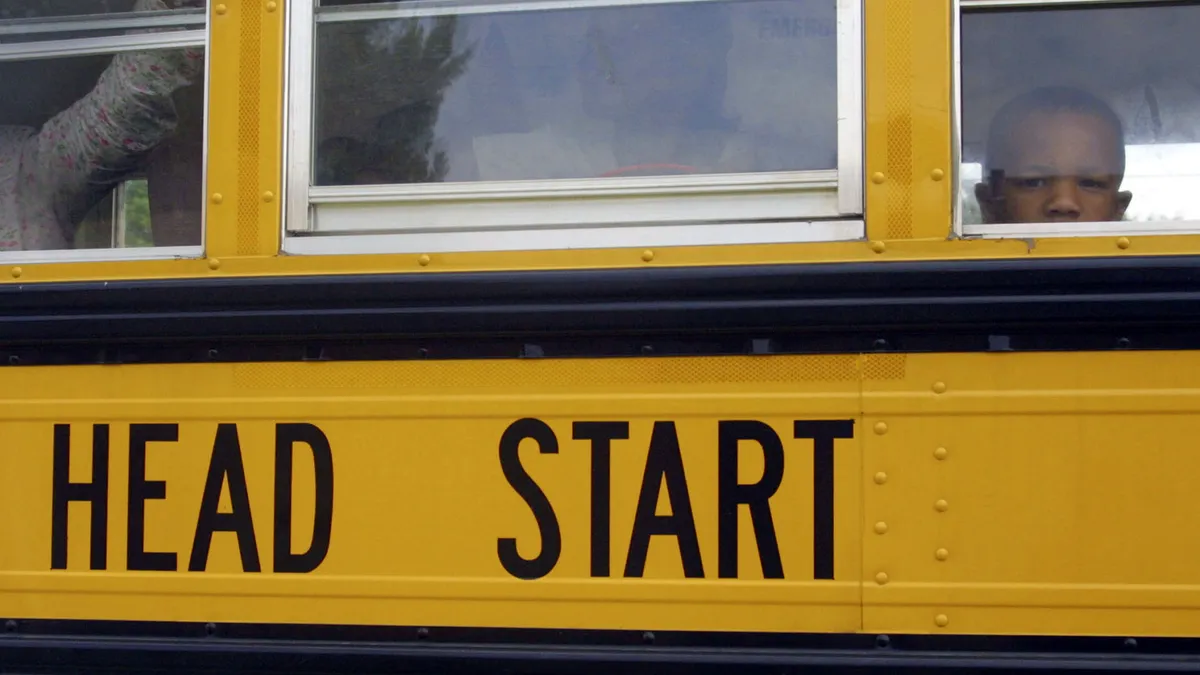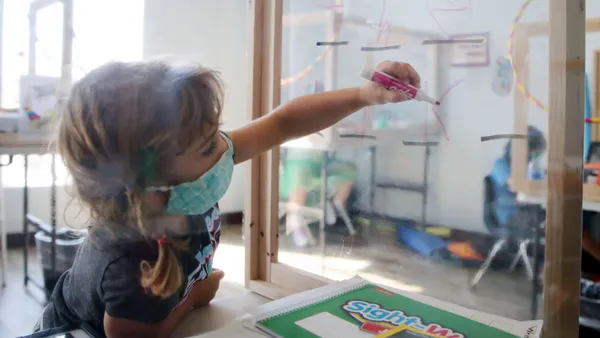Dive Brief:
- The federal Head Start program has contributed to multi-generational positive outcomes, including increases in education attainment and wages and decreases in teen pregnancy and criminal involvement, according to a study from the University of Notre Dame and Texas A&M University published this month in the Journal of Political Economy.
- The 122-page study said it is the first large-scale examination of the intergenerational effects of the 57-year-old Head Start program, created to improve the school readiness of preschool children from low-income families.
- Although this and previous research has highlighted the benefits of Head Start and other quality preschool programs, early childhood programs often lack racial and socioeconomic diversity in workforce, curriculum and students, said panelists in a Wednesday webinar hosted by The Hunt Institute, a nonprofit that works to improve education policy.
Dive Insight:
The long-term benefits of Head Start participation reinforce the importance of investments in early childhood education as the program provides opportunities to break the cycle of poverty, the study authors wrote.
The study largely focused on second-generation outcomes, with researchers consistently finding that increased Head Start exposure for mothers led to significant improvements in their children’s outcomes. One finding shows higher education attainment for children of Head Start participants resulted in an estimated 6% to 11% increase in wages for those second-generation children through age 50.
"We find strongly suggestive evidence that the positive effects of Head Start during its earliest years transferred across generations in the form of improved long-term outcomes for the second generation," wrote the authors.
The first panel of speakers at the Hunt Institute webinar did not address the Head Start study but praised preschool programs that serve children from low-income families. They also said that by targeting certain populations of young children, those programs can lack diversity.
"Aside from the funding, there hasn't really been any fundamental shift in how we think about the design of our federally funded programs, both Head Start and the Child Care Development Block Grant," said Yvette Sanchez Fuentes, vice president of national policy for Start Early, an early learning and care nonprofit that supports and trains early childhood workforce. Fuentes is also a former director of the national Office of Head Start.
"I do think as we move into thinking and planning for the future, we have to really have a shift in how we think about what these programs look like," including how to create more flexibility in funding to promote diversity, said Fuentes.
The Hunt Institute, in addition to hosting the webinar, published an issue brief on promoting diverse and inclusive preschool settings. The brief contains recommendations for continued and innovative funding investments and recruiting staff with various experiences and backgrounds.
The issue brief was published with various partner organizations, including The Education Trust and Educational Alliance. One publishing partner, the Educational Alliance's Manny Cantor Center in New York City, was highlighted in the report for its work in promoting diversity in its early childhood program.
The center's executive director, Jamie Davidson Craig, explained in the webinar that until 2018, the center had two separate preschool programs — one Head Start and one that was tuition-based, each with separate budgets, staffs and educational philosophies.
Leaders at the lower Manhattan center were determined to merge the two preschool programs to reflect the neighborhood around the schools, which includes public housing, multimillion dollar condominiums, and Chinatown.
After realizing the center's multiple funding sources could be braided, the center's leaders began planning for an integrated program for 4-years-olds and then mapped out a phased approach starting with the infant cohort. The pandemic caused the center to blend the programs sooner than planned when enrollment and staffing declined, Craig said.
Now, the integrated preschool program serves about 250 families and includes a family resource center that offers services like social work, mental wellness support, parenting classes and more.
"I think that what we're doing here at Manny Cantor is extremely powerful and is truly transformative," Craig said.













